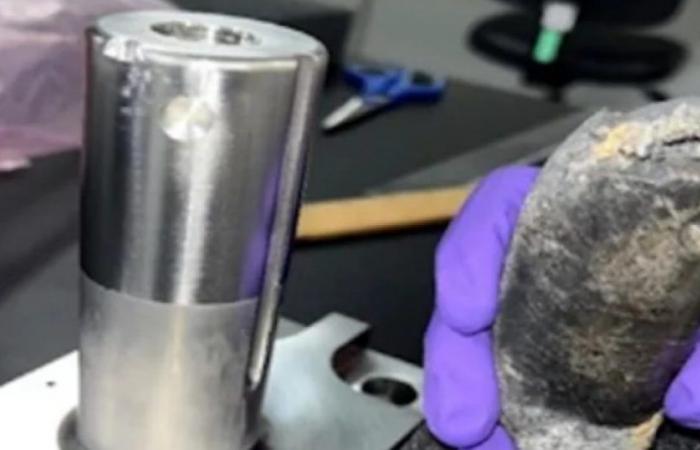The POT is being sued by a man whose home was damaged by a piece of space debris that came from the International Space Station (ISS).
The incident occurred in March and involved a 1.6-pound metal alloy object, 4 inches tall and 1.6 inches in diameter. NASA confirmed in April that it came from a 5,800-pound pallet of space debris containing aging nickel hydride batteries that was released from the station in 2021.
ISS hardware dumps like this would normally have burned up in Earth’s atmosphere, but this time it didn’t happen. Instead, a piece of the debris survived re-entry and crashed into the roof of a home belonging to Alejandro Otero in Naples, Florida. Otero’s son was home at the time of the incident, but escaped injury.
In a statement from the law firm representing the Otero family, partner Mica Nguyen Worthy revealed that a claim had been filed with NASA to recover her clients’ damages resulting from the incident.
“My clients are seeking appropriate compensation to take into account the stress and impact this event had on their lives,” Worthy said. “They are grateful that no one suffered physical injuries from this incident, but a ‘near miss’ situation like this could have been catastrophic. “If the debris had hit a few feet in another direction, there could have been serious injuries or a death.”
Worthy noted that if such an incident occurs outside the US, NASA would be liable for damages under the Space Liability Convention, a treaty established in the 1970s. But the law is not so clear. if it occurs within the borders of the United States.
“We have asked NASA not to apply a different standard toward American citizens or residents, but to take care of the Oteros and get them back,” Worthy said. “Here, the United States government, through NASA, has the opportunity to set the standard or ‘set a precedent’ for what responsible, safe and sustainable space operations should look like. “If NASA were to take the position that the Otero claims should be paid in full, it would send a strong signal to both other governments and private industries that such victims should be compensated regardless of fault.”
NASA has six months to respond to the claim.
The space agency said in April that it “remains committed to operating responsibly in low Earth orbit and mitigating the greatest possible risk to protect people on Earth when space hardware must be released.”
Otero, speaking shortly after the object punched a hole in the roof of his house, said: “I was shaking. He was in complete disbelief. “What are the chances of something falling into my house with that much force to cause that much damage?” He added that he was “super grateful that no one was hurt.”
Editor’s recommendations


